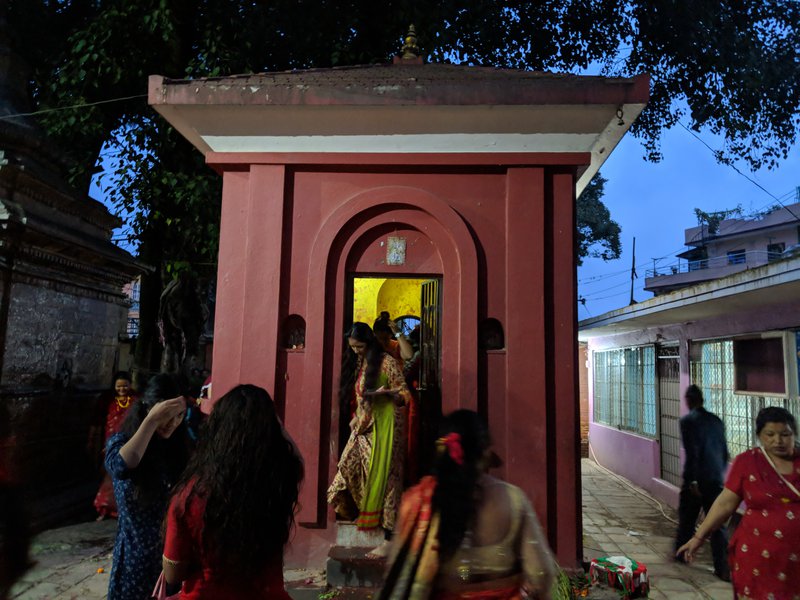
Nepali Hindu women are observing the Rishi Panchami, the last day of Teej festival across the country. Women gathered at Sapta Rishi Temples and other temples to worship Saptarishi.
Saptarish include Kashyapa, Atri, Bharadvaja, Vishvamitra, Gauthama, Jamadagmi and Vashishtha. Worshipping the seven great sages, or Sapt Rishis, forms the concluding part of the rituals performed. The prayers are offered in order to invoke the presence of the seven sages, with different offerings like food and flowers being offered.
Rishi Panchami is one of the most auspicious days for Hindus. It is believed that this is the perfect day to honour the entire gamut of sages of India - from the ancient to the present time. The festival of Rishi Panchami is especially dedicated to the Saptarishi, the seven great sages. The term rishi denotes sage and the term Panchami signifies the fifth day. Therefore, Rishi Panchami denotes the commemoration of great sages on the fifth day of Shukla Paksha in the month of Bhadrapad. Sapta Rishi refers to the seven learned sages who devoted their lives to the betterment of humankind.
The Great Legend of Rishi Panchami
Rishi Panchami is such an auspicious day that if the fast is observed and rituals are performed, a person is relieved from all the sins of his or her present or past life. Lord Brahma himself is the one who narrated the story of Rishi Panchami. According to him, there was a simple Brahmin named Uttank who used to live with his wife Sushila. Their daughter, who was a widow, also lived with them. One night, several ants covered the body of the daughter and the parents were astonished to see this. They became extremely worried and immediately called a sage, so that he could mend the situation.
The Rishi whom they called was a learned sage and he explained the reason behind the trouble. He made them aware of the sin that their daughter committed in her previous life. He told them that their daughter had entered the kitchen during her menstruation.
The rishi advised the daughter to perform certain rituals on the day of Rishi Panchami to purify her body and soul, so that this way, she would be relieved of the sin that she has committed. Following the instructions given by the sage, the daughter performed all the customs with absolute devotion. This set her soul free from the dosha. Therefore, this little yet powerful story becomes a platform that explains the significance of Rishi Panchami. Rishi Panchami is the road to peace and sanctification of the soul, mind and body.
Rituals to be performed on Rishi Panchami
The rituals and customs dedicated to Rishi Panchami must be performed with a pure heart and good intentions. A person's intentions play a vital role in the purification of his soul. Devotees have to wake up early morning and take a bath as soon as they wake up. A fast is observed on the day of Rishi Panchami. The one and only purpose of Rishi Panchami is to sanctify a person completely. Therefore, people do many things such as cleaning of teeth with upmarga (herb) and bathing with datwan herb. These herbs are very pure and are considered to leave the body extremely clean. Herbs are used for outer purification, whereas a mixture of curd, milk, basil and butter is drunk to purify the soul.

- India Supported Construction Of Four Schools In Nuwakot
- Mar 19, 2021
- Nepal Denies Permission For Third Phase Trial Of Vaccine Against COVID-19
- Aug 31, 2020
- Messi Can Only Cancel Barcelona Contract If €700 Million Release Clause Is Paid, La Liga Confirms
- Aug 31, 2020
- India To Carry Out Study On Kathmandu-Raksaul Railway
- Aug 28, 2020
- COVID-19: 1,351 Personal Of Nepal Police Infected
- Aug 28, 2020
















